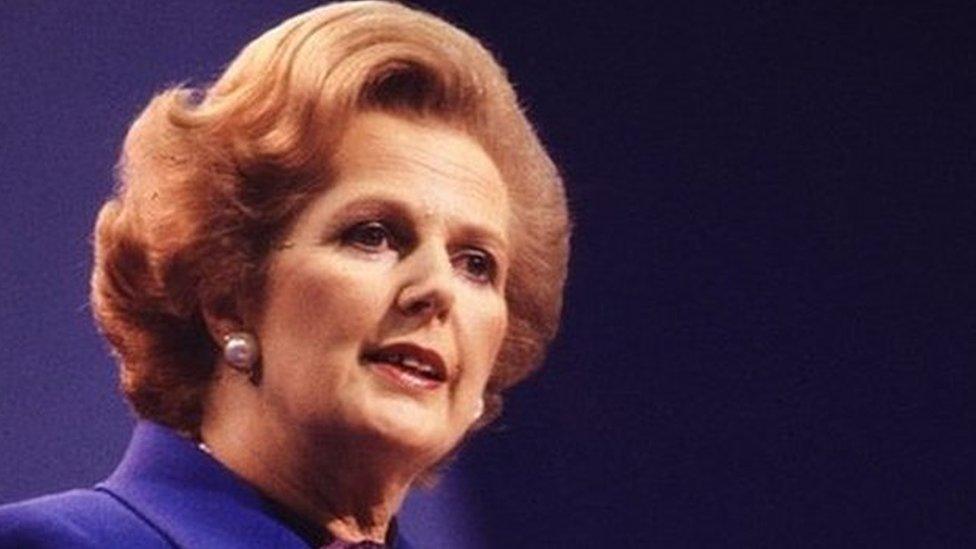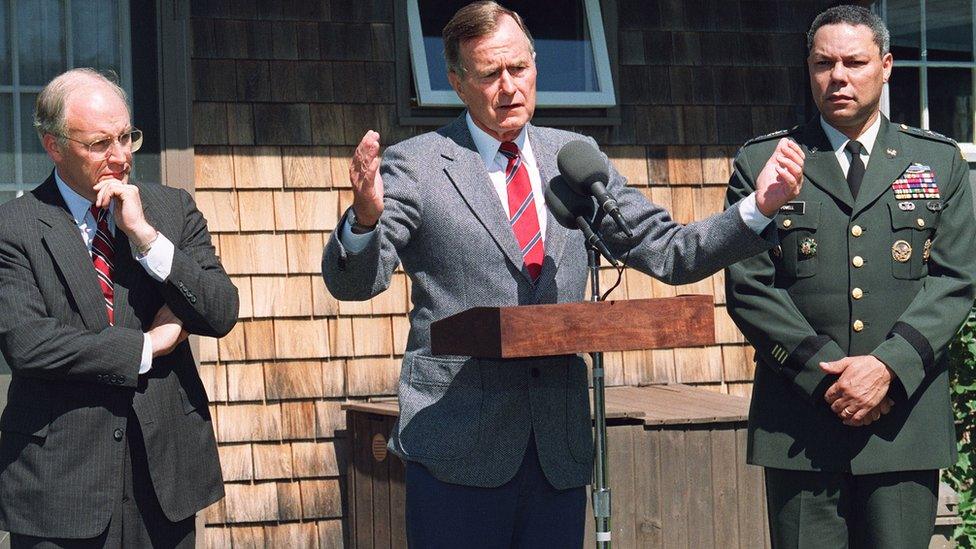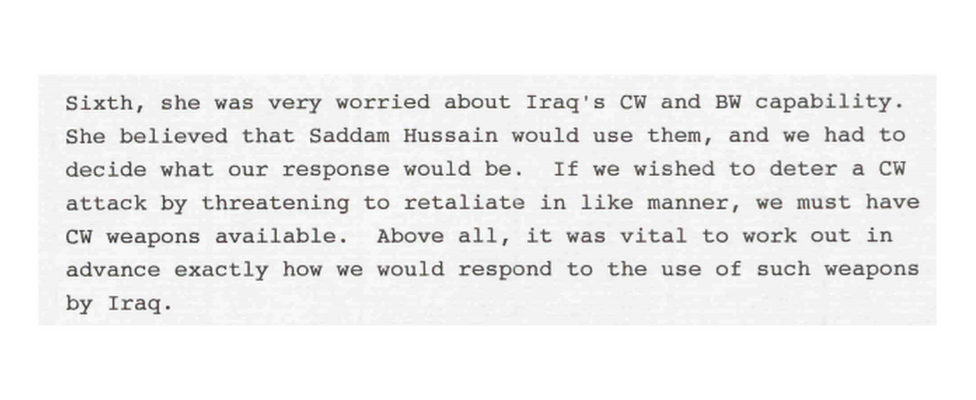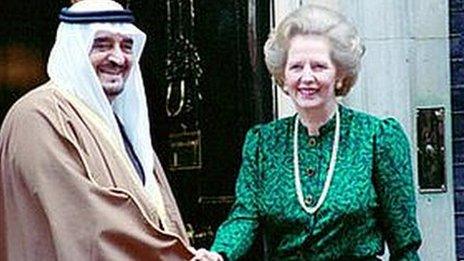Margaret Thatcher suggested threatening Saddam with chemical weapons
- Published

Margaret Thatcher suggested threatening Iraq with chemical weapons after the 1990 invasion of Kuwait, declassified documents show.
The formerly top secret correspondence was between the then UK prime minister and US defence secretary Dick Cheney.
Mrs Thatcher told Mr Cheney the US should consider retaliating "in like manner" if Iraq used chemical weapons.
But President George HW Bush said such a move would "put the US in the wrong in world opinion".
Under the leadership of Saddam Hussein, Iraq invaded the Gulf state of Kuwait in August 1990.
'World opinion'
The correspondence, released by the National Archive, details conversations Mrs Thatcher held with President Bush and Mr Cheney before she was forced from office in November 1990, as the countries considered their response to the invasion.
According to a September 1990 account of a meeting with President Bush in New York: "The prime minister asked what we would do in the event of an Iraqi attack with CW [chemical weapons] or BW [biological weapons].
"The president said that world opinion would eat Saddam Hussein for lunch if he resorted to this. The prime minister doubted whether Saddam Hussein would be deterred by world opinion. Did the US itself have CW in the area to act as a deterrent?
"The president said that use or threatened use of CW would only put the US in the wrong with world opinion. It would be better to launch an all-out conventional attack and wipe Saddam Hussein off the face of the earth."

Dick Cheney, President Bush and General Colin Powell in 1990
The memo adds that President Bush described reports in the UK press that the US could possibly use nuclear weapons against Iraq as not "at all helpful".
In a subsequent conversation with Mr Cheney the prime minister said she was: "Very worried about Iraq's CW and BW capability. She believed that Saddam Hussein would use them, and we had to decide what our response would be.
"If we wished to deter a CW attack by threatening to retaliate in like manner, we must have CW weapons available."
Mr Cheney said "no final decision had been taken on how to respond" to a chemical weapons attack.
He said that "the president had a particular aversion to chemical weapons", adding: "The US military commanders were not keen on them, because American forces had no experience of using them and many of the weapons themselves were outmoded."

By the time the UK joined US-led coalition forces taking military action against Iraq in January 1991, John Major had replaced Mrs Thatcher as prime minister.
Fierce fighting continued until 28 February 1991 when Iraq, whose military capability had by now been seriously harmed, agreed to a ceasefire.
In 1993 the UK and the US signed a convention outlawing the production and use of chemical weapons. They are among 192 countries to have ratified the Chemical Weapons Convention.
In 2003 Prime Minister Tony Blair used allegations that Iraq still had stockpiles of chemical and biological weapons as part of his case for supporting the US-led invasion of the the country, which led to the overthrow of Saddam Hussein.
The chief US weapons inspector later concluded that Iraq had no stockpiles of biological, chemical or nuclear weapons at the time of the invasion.
- Published9 April 2013
